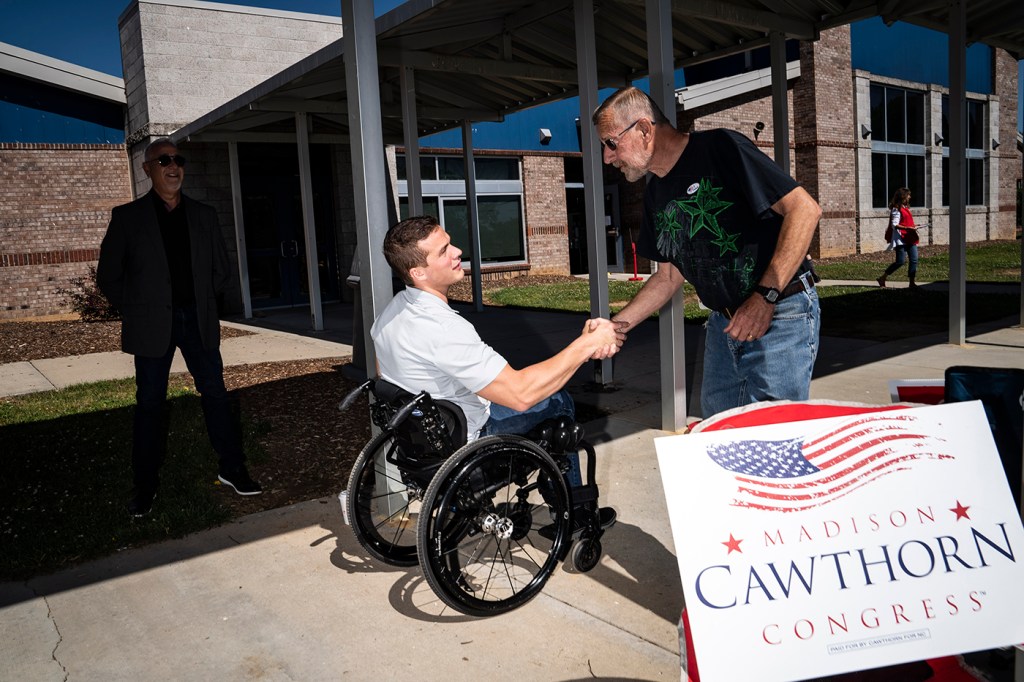Gen Z is now old enough to run for Congress. What impact could they have?

Generation Z, or those born between 1997 and 2012, are now old enough to run for federal office, specifically the U.S. House of Representatives.
And they are running. Maxwell Alejandro Frost, a 25-year-old running for Congress in Florida’s 10th Congressional District, is leading the charge, highlighting a new generation’s political ambitions and its strategies for pursuing public office at a time of deep partisan divisions that sees older politicians clinging to power for longer.
A Democrat, Frost seems to embody the generational shift toward more liberal values that characterizes younger voters, says Nick Beauchamp, associate professor of political science at Northeastern. He says he wants to focus on issues such as gun violence, climate change and student loan debt—topics that speak to a generation coming of age in a country that routinely witnesses mass shootings, more extreme weather patterns and burdensome increases in the cost of living.
“Gen Z’ers tend to be more left than the previous generation—and millennials were left of the generation before them,” Beauchamp says. “The general trend of [generations] becoming more liberal has been going on for at least 20 years.”

On the flip side, Beauchamp says he wonders whether young conservatives are following the same trend. That is, he wonders if, when it comes to younger voters, the trend is toward the extremes on both ends of the spectrum.
“Most of the polls say that the whole distribution has shifted leftward,” he says. “I haven’t seen as many polls that get at the granularity at the edges of the spectrum. Is there a tendency, for example, toward more extreme conservatism on the right in the way that there is more liberalism in general among the entire generation?”
Beauchamp says the rise in progressive and politically aspirational Gen Z’ers may have been helped along by Alexandria Ocasio-Cortez’s successful 2018 bid for New York’s 14th Congressional District, which helped reinvigorate the left—and particularly the far-left—in the wake of former president Donald Trump’s win in 2016. Her candidacy prompted observers to speculate whether there is an “AOC effect” that could serve to dilute the role of corporate money in future campaigns, clearing the way for more radically progressive choices like Bernie Sanders, or other younger newcomers.
“She was the first example of someone both very young, and who was further on the left than most” within her party, Beauchamp says.
It remains to be seen, however, if Gen Z candidates will galvanize younger voters to turn out in greater numbers on their behalf, Northeastern political science professor William Mayer says. As there is evidence that voters tend to become more conservative as they get older, Mayer says it’s critically important that younger voters win the support of their cohort.
“And I don’t know that there is a lot of evidence that says if you are in a particular age group, people from that age group would necessarily vote for you,” Mayer says. “Age is strongly correlated with the likelihood of voting, and young people historically vote in significantly smaller percentages than older people.”
Gen Z candidates also lack deep institutional connections that would allow them to raise the necessary funds to effectively contest older, more entrenched opposition, Mayer says. Although Frost appears to have amassed a modest social media following, popularity alone, he says, can’t make up for the gap. Additionally, “there are certain other identities that attract voters to a particular candidate.”
For all the promise of the next generation, Mayer says he’s reminded that youth and inexperience go hand-in-hand. Madison Cawthorne’s downfall is a good example—and perhaps a cautionary tale. Elected to the House of Representatives at age 25, Cawthorne, a Republican, was the first lawmaker to serve in Congress born in the 1990s before scandals tarnished his reputation; he was handedly defeated in a bid for re-election to North Carolina’s 11th Congressional District in May.
“I doubt they [Gen Z] are going to revolutionize American politics against the larger story of the 2022 [midterm] elections, where I think particularly in the House, the big question is to what extent will Biden’s own popularity problem drag down his party,” Mayer says.
For media inquiries, please contact media@northeastern.edu.






